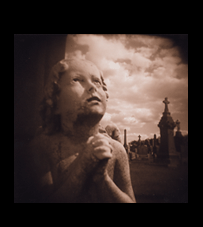I had mentioned in the story below, the story of a real "phony soldier" that was "writing" for the New Republic, a left wing rag. Now, one of my favorite journalists, and he is the genuine article, Michael Yon has penned his thoughts on the whole affair. So I decided to re-post this from Yon's blog. If you want to know what's really going on in Iraq, he is the guy. He doesn't sugarcoat anything and he doesn't try to color the news. He tells it like it is. This is a very good read and I thought if anyone was interested, you should read this and then you will understand the whole "phony soldier" story.
Beauchamp and the Rule of Second Chances
October 25, 2007
Beauchamp and the Rule of Second Chances: Pass it Along
I’d known that General Petraeus was once accidentally shot in the chest, but I first heard the full story this summer in Baqubah, from an eyewitness whose account I wrote about in Second Chances.
The story of General Petraeus getting accidentally shot in the chest is a case in point. One of his own soldiers had pulled the trigger. Normally, something very bad would have happened to that soldier and his commander. Instead Petraeus sent that soldier to Ranger School, and his Captain (Fred Johnson) was promoted early. In June, I witnessed LTC Fred Johnson helping to restore security and rebuild Baqubah. Fred Johnson is a believer in second chances.
Some months ago, a soldier in Baghdad wrote a piece on the way war can degrade the morals and affect the judgment of combat soldiers. His story was published at face-value in The New Republic magazine. In it the soldier wrote terrible things about his unit, making the article sensational.
I was in Iraq when it first hit the stands and someone asked me about the plausibility of the events described in the article. I skimmed the story but it did not even pass a simple sniff-test. With a shooting war going on, there is no time for trivial pursuits, so my only comment was something like, “It sounds like a bunch of garbage.” Turned out it was.
The soldier’s name was Beauchamp. He’d tried to hide his identity, but poor Beauchamp had no idea that the blog world would get on his trail and tree him like a coon. Beauchamp crawled up to the top of that tree, looked down into the snarling spotlight, and suddenly knew he was caught. His simple mask was no more effective than a coon’s, and that in itself might provide a little insight into how deeply Beauchamp had thought this all through. In any case, he was up in that tree, surrounded by hounds who’d done this plenty of times, yet always found this part exciting. The hunters would have written the last sentence if the choice was up to them.
Some wanted Beauchamp to go to prison; some were baying for blood. The fellas in his unit were unhappy, as were his commanders, since he’d made some of them look like immature dimwits while others he’d cast as deliberately cruel in the worst of ways. Nobody likes to risk life and limb in the hope they are doing the right thing only to be spat upon and accused of criminal acts.
It took a while for the truth to eke out; there was almost none of it in what was published. As the real story unfolded, The New Republic looked increasingly culpable and ridiculous trying to hide behind a fact-checking process that was clearly stuck on the difference between fact and fabrication. In the lingering spotlight, no one seemed to appreciate the soft shoe.
It was not a story I followed closely because then—as now—I was focused on the war. But what struck me as most important was not that Beauchamp wrote some bad combat stress fiction, but that a media organization printed it as truth.
And what of Beauchamp? Because he was the man who originally wrote the lurid overwrought fable of puppy-killing among the grave-desecrating cretins who made fun of a woman disfigured by bombs, the tepid outcome left many people unhappy. Especially those who wanted to see him humiliated (he has been plenty humiliated). Beauchamp was allowed to stay in the Army and suffered only a minor administrative setback.
I was at a reconciliation meeting between Sunni and Shia in the West Rashid district of Baghdad on 24 October, and it happened by complete coincidence that I was with Beauchamp’s battalion. In fact, I was with his old company commander for much of the day, although I had no idea for most of it that I was with Beauchamp’s old company commander.
At the reconciliation meeting, Beauchamp’s battalion commander, LTC George Glaze, politely introduced himself and asked who I wrote for. When I replied that I just have a little blog, the word caught his ears and he mentioned Beauchamp, who I acknowledged having heard something about. LTC Glaze seemed protective of Beauchamp, despite how the young soldier had maligned his fellow soldiers. In fact, the commander said Beauchamp, having learned his lesson, was given the chance to leave or stay.
The reality of war is hellish enough: the IED that left this massive crater in the road in Mosul also killed four soldiers and an interpreter.
It can be pretty tough over here. The soldiers in Beauchamp’s unit have seen a lot of combat. Often times soldiers are working in long stretches of urban guerrilla combat dogged by fatigue and sleep deprivation. This is likely one of the most stressful jobs in the world, especially when millions of people are screaming at you for failures that happened three years or more ago, and for decisions to invade Iraq that were made when you were still a teenager. Just as bad is the silence from the untold millions who have already written off your effort as hopeless. Add that to the fact that buddies are getting killed in front of you. (More than 70 killed in Beauchamp’s brigade.) I see what these young men and women go through, and the extraordinary professionalism they nearly always manage to exude awes me on a daily basis.
Lapses of judgment are bound to happen, and accountability is critical, but that’s not the same thing as pulling out the hanging rope every time a soldier makes a mistake.
Beauchamp is young; under pressure he made a dumb mistake. In fact, he has not always been an ideal soldier. But to his credit, the young soldier decided to stay, and he is serving tonight in a dangerous part of Baghdad. He might well be seriously injured or killed here, and he knows it. He could have quit, but he did not. He faced his peers. I can only imagine the cold shoulders, and worse, he must have gotten. He could have left the unit, but LTC Glaze told me that Beauchamp wanted to stay and make it right. Whatever price he has to pay, he is paying it.
So much depends on soldiers who are sometimes all too human.
The commander said I was welcome to talk with Beauchamp, but clearly he did not want anyone else coming at his soldier. LTC Glaze told me that at least one blog had even called for Beauchamp to be killed, which seems rather extreme even on a very bad day. LTC Glaze wants to keep Beauchamp, and hopes folks will let it rest. I’m with LTC Glaze on this: it’s time to let Beauchamp get back to the war. The young soldier learned his lessons. He paid enough to earn his second chance that he must know he will never get a third.
Though Beauchamp is close, I’m not going to spend half a day tracking him down when just this morning I woke to rockets launching from nearby and landing on an American base. Who has time to skin Beauchamp? We need him on his post and focused.
As for The New Republic, some on the staff may feel like they’ve been hounded and treed, but it’s hard to feel the same sympathy for a group of cowards who won’t ’fess up and can’t face the scorn of American combat soldiers who were injured by their collective lapse of judgment. It’s up to their readers to decide the ultimate fate.
The New Republic treed like a bandit . . . personally, I think they would make a nice Daniel Boone hat.
Subscribe to:
Post Comments (Atom)











3 comments:
chenlili20160607
christian louboutin shoes
nike trainers women
coach factory outlet
nike sb janoski
cheap ray ban sunglasses
christian louboutin outlet
louis vuitton outlet
louis vuitton
ray ban sunglasses uk
michael kors outlet
toms shoes
louis vuitton bags
louis vuitton purses
louis vuitton
michael kors outlet
michael kors outlet clearance
nike roshe one
adidas running shoes
asics shoes
christian louboutin shoes
air force 1
discount jordans
louis vuitton purses
louis vuitton handbags
ray ban sunglasses
kobe 10
hollister jeans
abercrombie & fitch new york
air jordan 4
coach outlet clearance
tory burch handbags
christian louboutin
cheap air jordans
coach outlet store online clearances
michael kors outlet
michael kors handbags
michael kors outlet online
bears jerseys
gucci sito ufficiale
chiefs jersey
michael kors uk
longchamp bags
pandora jewelry
longchamp le pliage
cheap ray ban sunglasses
nike tn
air force 1 shoes
ray ban sunglasses
mont blanc pens outlet
nike shoes
supra shoes sale
los angeles lakers jerseys
kate spade outlet
ugg boots
jordan 4
Post a Comment